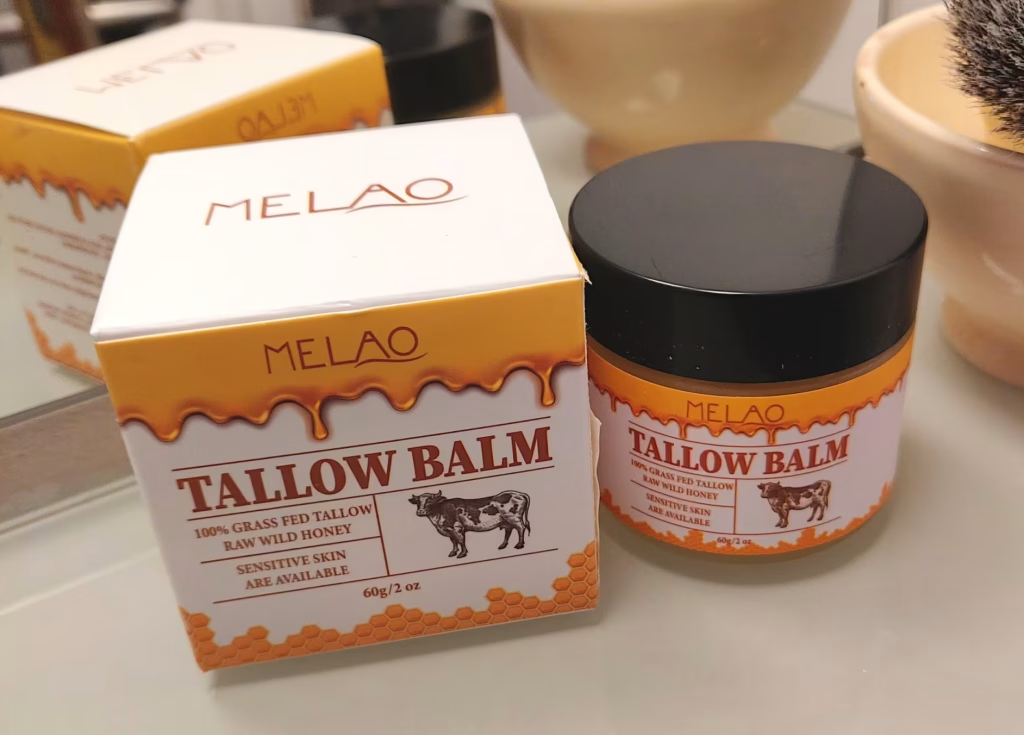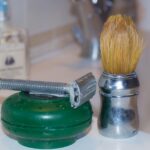Find out how to moisturize skin with simple techniques and natural ingredients, many of which you’ll find in your kitchen pantry.

After swimming in the ocean or due to reduced humidity from central heating, I’m prone to sudden bouts of chapped, flaky skin that is unsightly, uncomfortable, and itchy. Other common causes are freezing weather or bathing in water that is too hot. But because it’s not chronic, I never bother renewing the pharmacy products recommended by my dermatologist—I guess I always believe it won’t happen again.
That’s why I end up using whatever I have at hand to moisturize and soothe my sore skin, which is invariably something from the kitchen, although not always.
I’ve found that such items really do help. They’re just not as convenient as ready-made products.
But without comparing bought and natural moisturizing treatments, I’ve also discovered that a combination of both heals my skin more quickly than one or the other.
That is to say, natural moisturizers are not only for emergencies. In fact, I’ve integrated some into my daily skincare regimen.
A Natural Body Mask
The worst thing about severe dry skin is the unbearable feeling of tautness, which may be accompanied by itching. Inevitably, scratching proves irresistible, which further exacerbates the problem.
For me, it mostly affects my shoulders and upper arms.
To make skin supple again, try this all-over body mask.
Beat one egg yolk with three tablespoons of apple cider vinegar, stir in half a cup of olive or sunflower oil, and add a couple of drops of essential oil of lavender.
Spread the mixture over the affected area and allow it to work for 15 to 20 minutes. Rinse under a cool shower and pat gently with a towel—never rub flaky or irritated skin when drying.
The vinegar restores the skin’s pH balance. Olive and sunflower oil are sources of vitamin E, which is a powerful antioxidant that heals and repairs. And lavender oil—apart from adding a clean, masculine aroma—is known for its valuable regenerative properties.
Tea for Dry Skin
This soothing bath softens rough and sensitive skin and is as easy to prepare as a hot cup of tea on a cold winter’s night.
Just throw a few bags of lavender, chamomile, or rose-hip tea into a lukewarm tub and add a few drops of olive or sunflower oil.
You can use ordinary teabags for this, but filter bags made especially for bathing are also available; look for products labeled “Tub Tea” or “Tub Bags.”
Another option is reusable muslin teabags with a drawstring, which can be filled with any herb you’d like your infusion or bath to be flavored with.
Don’t forget: To soothe and prevent dry skin, bathe and shower in water that is comfortably warm but not hot. And to avoid the drying effect of soap-based products, use a soap-free body wash with a pH value of 5.5 (e.g., Sebamed) for as long as your dry skin persists.
Bathe With Rolled Oats
Rolled or “old-fashioned” oats are particularly beneficial for dry skin due to their moisturizing and anti-inflammatory properties, which relieve itching.
Form colloidal oatmeal by pulverizing at least 100 grams (approx. 1 cup) of rolled oats in a food processor. The oatmeal should be fine enough for your bathwater to appear milky. This can be used alone or in combination with one of the above bath teas and a little oil.
In order to retain the oats’ soothing effect, apply a rich, unscented body lotion while the skin is still moist.

A Carrot Mask to Moisturize Dry Facial Skin
When my facial skin is particularly dry and flaky, especially during winter, regular moisturizers often prove inadequate. This is when I need an additional product that not only hydrates but also repairs and brightens.
I’ve found that regular use of this carrot mask works wonders.
Blend to a paste three medium-sized carrots, one egg yolk, and a tablespoon of olive or sunflower oil. To thicken the consistency, stir in a little pulverized oatmeal. Smooth over your face and neck, and leave for 15 to 20 minutes. Rinse and apply moisturizer while the skin is still moist.
Oil-in-Water Cleanser
If your face is dry and sensitive, you need a cleanser that is gentle, hydrating, and capable of removing every trace of grime. So-called oil-in-water cleansers and two-phase micellar water do the job perfectly, but you probably don’t have one at hand.
For the same effect, massage your face with olive or sunflower oil, splash on some water, work into an emulsion, rinse, and pat dry.
In case you use a toner, make sure it’s formulated for dry or sensitive skin. Avoid astringents and alcohol-based products like aftershave.
Pre-Shave Oil
When wet shaving, make sure the razor is sharp and always apply a lubricant. Not doing so will irritate dry skin, making matters worse.
But the trouble with most soap-based lubricants is their drying effect. To overcome this, apply an oil before shaving. This acts as a barrier between the skin and the lubricant, as well as softening hairs and moisturizing.
I prefer sunflower oil for this.

Beef Tallow for Chapped Lips
Lip balms contain beeswax, carnauba wax, or petroleum jelly, which are ideal to protect lips and keep moisture locked in, but they don’t hydrate. This is why lips continue to dry out in spite of multiple applications.
If your lips are chapped, use beef tallow balm instead, which protects and moisturizes. If you need a sunscreen, apply a conventional balm with UV protection over it.
Beef Tallow in Place of Petroleum Jelly
Due to a high concentration of occlusive agents, beef tallow balm can be used in place of petroleum jelly.
Use it to treat cracked elbows, knees, and heels.
For dry facial skin, it’s excellent for slugging. This refers to the overnight process of sealing in moisture with an occlusive agent. Unlike Vaseline, beef tallow not only forms a barrier to prevent moisture loss; it hydrates, too.
Coconut Oil for Dry Hands
For best results, dry and chapped hands should be treated overnight.
Before bed, heat coconut oil in a water bath, massage into your hands, and cover with cotton gloves.
Not only does it moisturize; with regular use, coconut oil softens calloused skin as well as strengthening its protective barrier, making it less prone to dryness. Try on calloused feet, too.
To prevent dry hands, rinse thoroughly after washing, apply hand cream after contact with water, wear gloves in cold weather, and protect with rubber gloves when using detergents and similar chemicals.
12 Tips to Help Keep Skin Moisturized
Here’s a recap of tips given in this post to help prevent irritations and severe dryness. Whether you moisturize with natural or laboratory-created products, it should be for prevention rather than cure.
- Never bathe or shower in hot water.
- Soap-based products dry the skin. Use a soap-free body wash, apply oil before lathering up with a shaving lubricant, and always rinse thoroughly.
- Never use a dull razor.
- Never scratch itchy skin.
- To avoid itching and other irritations, skincare products should be alcohol and perfume free.
- Apply creams, lotions, and oils while the skin is still moist after bathing or cleansing.
- Never rub flaky and irritated skin when drying. Pat gently.
- Protect your lips with a balm.
- Try using beef tallow in place of petroleum jelly.
- Apply hand cream after contact with water and before going out in the cold.
- Always wear gloves during cold weather.
- Wear rubber gloves to avoid contact with detergents and other cleaning products.
© 2025 J. Richardson
Related Posts
Disclaimer
The information provided by The Neat and Tidy Man (“we,” “us,” or “our”) on theneatandtidyman.com (the “site”) is for general informational purposes only. While we endeavor to keep the information up to date and correct, we make no representation or warranty of any kind, express or implied, regarding the completeness, accuracy, reliability, suitability, adequacy, validity, or availability of any information on the site. Under no circumstance shall we have any liability to you for any loss or damage of any kind incurred as a result of the use of the site or reliance on any information provided on the site. Your use of the site and your reliance on any information on the site is solely at your own risk.



